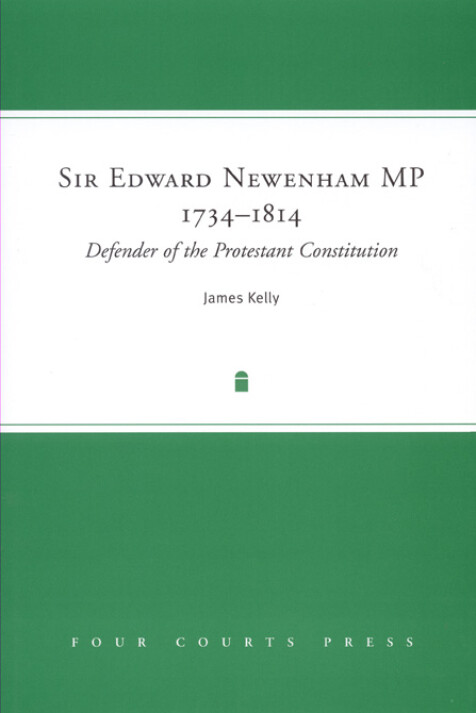Sir Edward Newenham MP, 1734–1814
Defender of the Protestant constitution
James Kelly
'James Kelly explains these developments clearly and his command of detail and context is admirable. His book is based on extensive archival research and demonstrates a sure grasp of the historiography ... an excellent read', Michael Turner, History.
‘In this comprehensive biography, Dr Kelly has rescued Sir Edward Newenham from relative obscurity and has assessed many of the peculiarities and eccentricities of his political career. He has displayed great energy and industry in ferreting out large amounts of primary material buried in national archives and personal collections in Ireland, Britain and North America. The amount of material uncovered is staggering, as the footnotes and endnotes testify ... Like Kelly’s previous work on Henry Flood and Henry Grattan, this biography has set a very high standard for other political biographers of the Irish eighteenth century’, Eugene Coyle, Eighteenth-Century Ireland (2006).
‘… an in-depth analysis of the career of Sir-Edward Newenham, one of the leading radical figures in late eighteenth-century Irish parliamentary politics’, Paddy McNally, American Historical Review.
‘This study shows that he possessed a strong anticlerical animus, manifested, for instance, in his condemnation of the Church of Ireland bishops who voted against tide reform in the 1780s … It is a book that deepens our understanding of the ideas and values that dominated political discourse in Ireland for a generation from the 1760s, and highlights the challenge posed to those values by the ideas and events on the 1790s’, Jacqueline Hill, Parliamentary History (2005).
‘Sir Edward Newenham, as his biographer admits, excited contradictory opinions among his contemporaries. Some dismissed him as a radical bore, often inconsistent in his attitudes, stiff as a performer in the Dublin parliament and intemperate in his many newspaper articles. Others admired his awkward independence, which prevented him joining the United Irishmen of the 1790s, his pioneering exploitation of the press, and his politicisation of his constituents in County Dublin … It is greatly to Dr Kelly’s credit that he has been able to locate enough materials, scattered across Ireland, the United Kingdom and North America, to construct a convincing life … Newenham, although he remains resolutely an individualist, sometimes in a tiny minority in parliamentary divisions, is turned by Dr Kelly’s skill into a figure through whom the tension between reform and Irish Protestant privilege is fully explored’, T.C. Barnard, English Historical Review.

